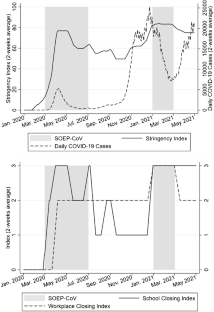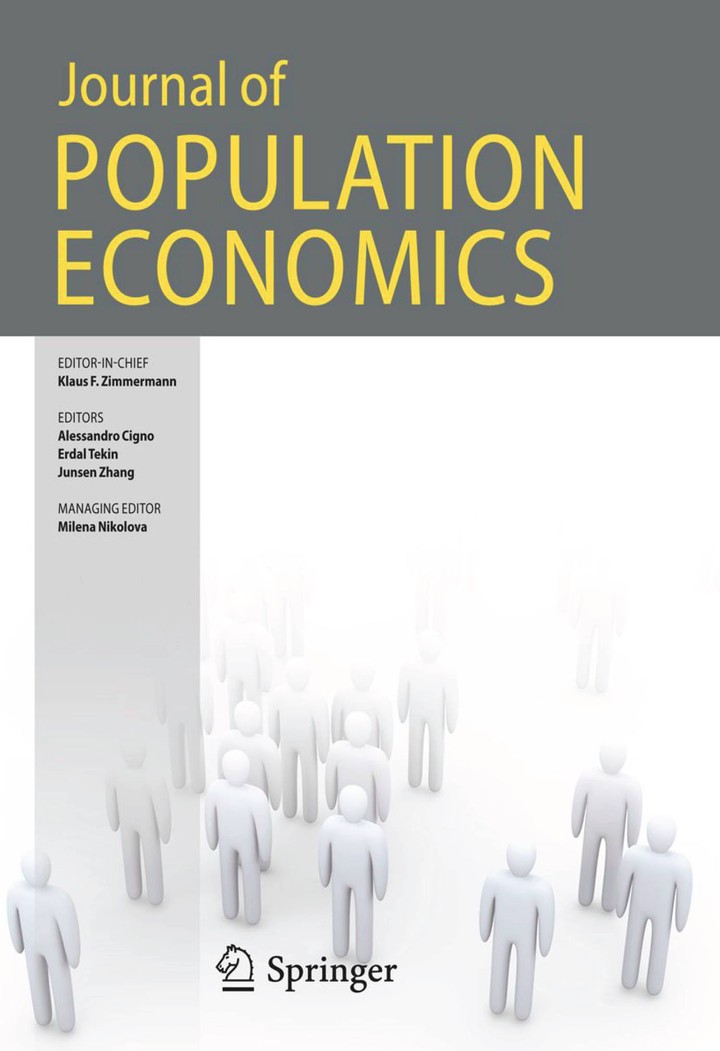COVID-19 期间的远程工作和生活满意度:家庭结构的重要性
IF 3
2区 经济学
引用次数: 0
摘要
我们对作为德国社会经济小组(SOEP)调查一部分的实时调查进行了差异分析,结果表明,在 COVID-19 大流行的头两年,远程工作对生活满意度的平均影响为负。这种平均效应隐藏着相当大的异质性,反映了性别角色的不对称性:只有未婚男性和有学龄儿童的女性的生活满意度较低。有学龄儿童的妇女的负面影响在 2021 年消失,这表明她们适应了新的制约因素和/或采取了应对策略。本文章由计算机程序翻译,如有差异,请以英文原文为准。

Teleworking and life satisfaction during COVID-19: the importance of family structure
We carry out a difference-in-differences analysis of a real-time survey conducted as part of the German Socio-Economic Panel (SOEP) survey and show that teleworking had a negative average effect on life satisfaction over the first 2 years of the COVID-19 pandemic. This average effect hides considerable heterogeneity, reflecting gender-role asymmetries: lower life satisfaction is found only for unmarried men and for women with school-age children. The negative effect for women with school-age children disappears in 2021, suggesting adaptation to new constraints and/or the adoption of coping strategies.
求助全文
通过发布文献求助,成功后即可免费获取论文全文。
去求助
来源期刊

Journal of Population Economics
Multiple-
CiteScore
9.60
自引率
6.60%
发文量
50
期刊介绍:
The Journal of Population Economics is an international quarterly that publishes original theoretical and applied research in all areas of population economics.
Micro-level topics examine individual, household or family behavior, including household formation, marriage, divorce, fertility choices, education, labor supply, migration, health, risky behavior and aging. Macro-level investigations may address such issues as economic growth with exogenous or endogenous population evolution, population policy, savings and pensions, social security, housing, and health care.
The journal also features research into economic approaches to human biology, the relationship between population dynamics and public choice, and the impact of population on the distribution of income and wealth. Lastly, readers will find papers dealing with policy issues and development problems that are relevant to population issues.The journal is published in collaboration with POP at UNU-MERIT, the Global Labor Organization (GLO) and the European Society for Population Economics (ESPE).Officially cited as: J Popul Econ Factor (RePEc): 13.576 (July 2018) Rank 69 of 2102 journals listed in RePEc
 求助内容:
求助内容: 应助结果提醒方式:
应助结果提醒方式:


